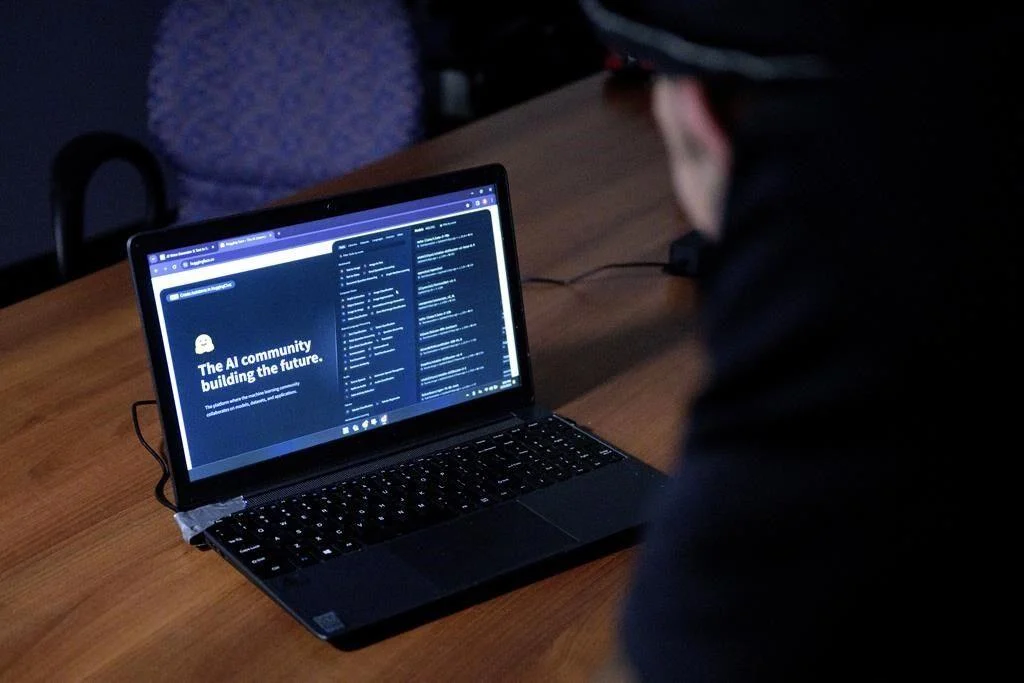
FILE - Paul Carpenter describes AI software during an interview in New Orleans, Friday, Feb. 23, 2024. (AP Photo/Matthew Hinton)
The League of Women Voters has taken legal action against the individuals and entities responsible for sending robocalls that imitated President Joe Biden's voice to voters in New Hampshire. Filed on a Thursday, the lawsuit aims to prevent future deceptive practices involving artificial intelligence.
In the lawsuit, filed in a federal court in New Hampshire, the League of Women Voters names Steve Kramer, a political consultant linked to the calls, along with two Texas companies believed to have been involved in their transmission: Lingo Telecom and Life Corporation. The legal action cites violations of both state and federal laws and seeks penalties against the defendants. Furthermore, it requests that they be barred from producing and distributing AI-generated robocalls without obtaining consent from those whose voices are being impersonated.
The controversy stems from a robocall sent to thousands of New Hampshire voters on January 21. The call featured a voice resembling President Biden's and falsely suggested that voting in the state's presidential primary, scheduled for two days later, would prevent voters from casting ballots in the November election. Steve Kramer, who reportedly paid a technology consultant $150 to create the recording, claimed he orchestrated the call to raise awareness about the potential risks associated with artificial intelligence and to prompt legislative action.
However, attorneys representing the plaintiffs in the lawsuit have contested Kramer's explanation, labeling it "self-serving." They argue that regardless of the motive, the intent of the robocalls was to suppress voter turnout by coercing voters with misinformation. Mark Herring, a former attorney general of Virginia, emphasized the gravity of the situation, asserting that the lawsuit aims to address the threat posed by such deceptive tactics.
When reached for comment, a spokesperson for Steve Kramer declined, citing the fact that their legal team had not yet received the lawsuit. Lingo Telecom and Life Corporation did not immediately respond to requests for comment on the matter.
The lawsuit sheds light on growing concerns surrounding the use of sophisticated AI tools, including voice-cloning software and image generators, in election campaigns both in the United States and globally. This development has sparked bipartisan efforts in Congress to regulate the use of AI in political contexts, although no federal legislation has been enacted thus far.
Following the incident in New Hampshire, the Federal Communications Commission (FCC) moved to outlaw robocalls featuring voices generated by artificial intelligence. Additionally, major technology companies have pledged to adopt voluntary measures to prevent the misuse of AI tools in election-related activities.
However, the potential for disruption remains significant, prompting organizations like the League of Women Voters to reassess their strategies. Courtney Hostetler, representing Free Speech for People, emphasized the diversion of resources towards addressing this new threat and its implications for voter education and outreach efforts.
Celina Stewart, chief counsel at the League of Women Voters, highlighted the chaos caused by the robocalls during the New Hampshire primary. She questioned the fairness of burdening election workers with overcoming obstacles such as deceptive robocalls, particularly considering their already demanding schedules.
Overall, the lawsuit filed by the League of Women Voters underscores the importance of safeguarding the electoral process against deceptive practices, particularly those facilitated by emerging technologies like artificial intelligence.















